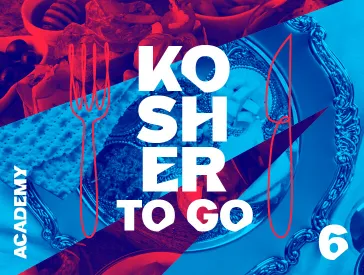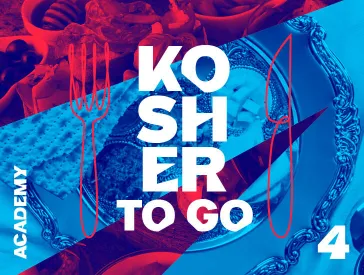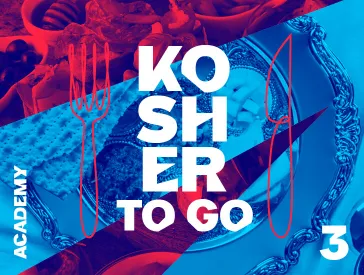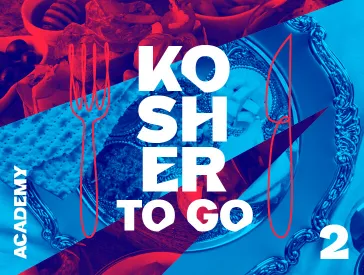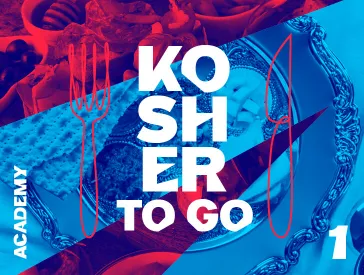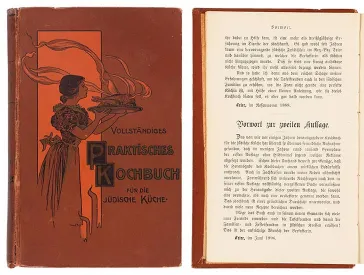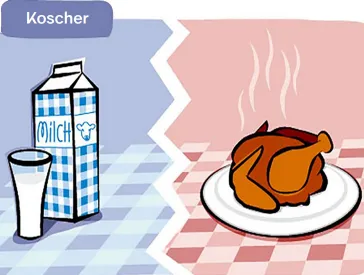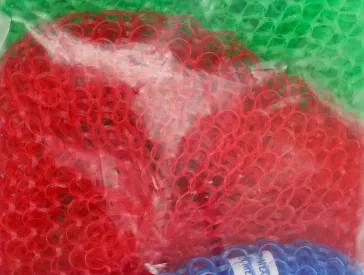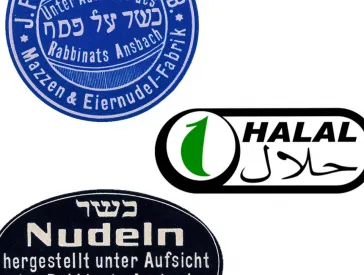Kashrut
The Hebrew word kashrut means “ritual suitability” and refers to the Jewish dietary laws. These dictate how to prepare, store, and eat food and how to slaughter animals that are permitted for consumption. Foods that are permitted to eat under kashrut are “kosher.” Non-kosher foods are known as treyf.
Slaughtering and Eating Animals
For example, land animals are kosher if they chew their cud and have cloven hooves. That category includes cows and sheep. Permitted animals must also be slaughtered according to specific rules. By this definition, however, pigs are not kosher. Animals that live in water can only be eaten if they have fins and scales. For this reason, shrimp and squid are non-kosher, as are eels, which lost their fins in their evolution.
Separating Milk and Meat
Another rule applies to the way milk and meat are prepared and eaten. The Torah says not to cook a kid-goat in its mother's milk. Based on this commandment, kashrut forbids storing, preparing, or eating dairy products and meat products together. Foods that are neither "meaty" (basari) nor "milky" (chalavi) are considered neutral (parve) and may be eaten with any meal.
Dishes for Certain Holidays
Many traditional dishes are associated with holidays and are only eaten then. On other holidays, particular foods must be avoided; on Passover, for example, bread may only be eaten if it was prepared without yeast or sourdough.
Dialogical Lecture Series: Kosher to Go – Perspectives on Religious Food Regulations (5)


